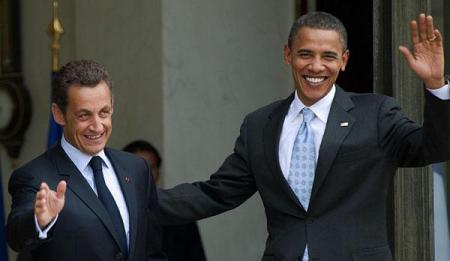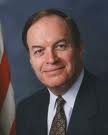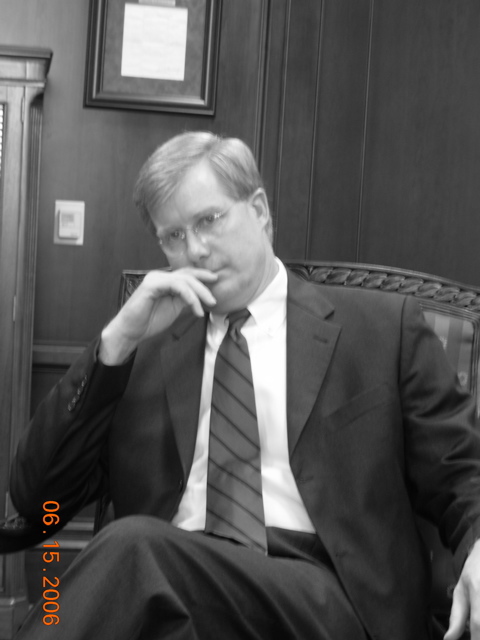Let's hope the Obama administration this week delayed its deadline for picking the next generation of Air Force tankers for good reason, as claimed ─ not as a cave-in to those who want U.S. taxpayers to fund European jobs.
To kowtow to Europe's EADS and their mostly Republican U.S. allies for the wrong reasons would only hurt the U.S. economy and encourage the scandalous conduct that's been occurring on both sides of the nearly decade-long EADS rivalry with Boeing over tanker contracts.
Talks this week between President Obama and French President Nicolas Sarkozy resulted in a Pentagon announcement March 31 that it would delay its deadline for bids 60 days until July 9. EADS is the acronym for the European Aeronautic Defense and Space Co.
Obama said during a joint press conference March 30 in Washington that he promised Sarkozy that Defense Department decision-making would be "free and fair" because the U.S. wants to hold a transparent bidding process.
The contract's value is estimated at $35 billion, one of the largest in American history. But the true value could be vastly higher because the contract winner gets vital momentum for similar deals with other nations around the world.
Political, financial and military leaders of five world powers are active at their highest levels. Aside from Obama and Sarkozy, Russia's Vladimir Putin, Germany's Angela Merkel and the United Kingdom's Gordon Brown are keenly interested in securing jobs for their nationals from the U.S. contracts.

Presidents Sarkozy and Obama (File Photo)
Boeing issued a statement April 1 denying any legitimate reason to extend the bidding past DOD's previous deadline May 10 to accommodate the Europeans. EADS has been pushing for a longer bidding process that might extend final decision-making past mid-term U.S. elections.
In jockeying for an EADS victory that would create a large assembly factory in Alabama, the state's senior Republican Sen. Richard Shelby in February put a "hold" on 70 Obama federal nominations.
Shelby disrupted the Obama administration as it entered its second year after numerous delays in appointments during the first year that are keeping holdovers in many key slots throughout government. In Alabama's middle district, for example, Leura Canary remains as U.S. attorney despite being one of the nation's most controversial "loyal Bushies." The term comes from a former Bush DOJ chief of staff writing in 2005 to then-White House advisor Karl Rove about their need for politically loyal prosecutors to oversee the nation's criminal investigations.
Later, Shelby backed off blocking all Obama appointments after flexing his Senate muscle, but Republicans continue to move slowly on nominees and Democrats themselves dispute the optimal replacement for Canary, among others. As a countermeasure, the Obama administration just made 15 recess appointments to try to secure control of federal bureaucracy before too much more time passes.

Sen. Richard Shelby
But the political clock is ticking in other ways if EADS and its backers can nudge final Pentagon decision-making a few more weeks into the period after November's U.S. elections. Republicans are expected to gain far more congressional clout. At that point, the Republican mastery of Senate rules even when they're in the minority combined with European financial muscle could threaten even Boeing, which is no slouch itself in power politics in the U.S. and internationally.
More generally, ensuring an award to EADS was a factor in two of the past decade's most notable federal corruption prosecutions, those of former Alabama Gov. Don Siegelman and former Air Force Assistant Secretary Darleen Druyun, according to my sources. An independent review of federal corruption investigations is the primary focus of my work with the start-up Justice Integrity Project.
Prosecutors dispute any political motive in either investigation. Here are the basics so you can decide:
In 2006, federal authorities working through Canary's office convicted Siegelman, the major Democrat in the state. His main convictions were for seeking donations from a businessman for a non-profit that advocated for better school funding. Prosecutors and jurors found corruption in Siegelman's reappointment of the donor to a state board on which he'd already been serving under previous governors.
In political circles, Siegelman was also regarded as less adept than his Republican rival Bob Riley in the international clout needed to ensure an EADS victory and its commitment to an Alabama assembly plant.
Riley had been a leader in House military appropriations before narrowly defeating Siegelman in 2002 gubernatorial election. As a congressman and then as governor, Riley cultivated contacts with Russian and French suppliers who are major advocates of EADS.
Also, the federal authorities won a corruption conviction against Druyun, building on initial investigative work by Boeing's rivals using competitive intelligence. Druyun had helped her daughter and prospective son-in-law obtain jobs at Boeing, and she also helped Boeing obtain highly favorable terms on Air Force tanker leases. The leases cost taxpayers vastly more than outright Air Force purchase of planes.
Druyun retired from the Air Force in 2003, and received a $250,000 per year job at Boeing. But she was sentenced to prison after she was exposed.
The scandal helped build momentum to overturn the initial Air Force award to Boeing.
This kind of intense interest in building airplanes is, of course, well-understood among Washington's lobbyists and those whom they fund for election to office. Closely observing such contract awards also are national security proponents and business leaders in localities that might host factories.
Mobile County, for example, maintains an advocacy website called Save Our Tanker," where I've signed up as a "supporter" to receive news updates. Another major advocate for EADS is the Business Council of Alabama, whose CEO/president is the prosecutor Leura Canary's husband, William Canary. Also, he's the former campaign manager for Riley in his 2002 victory against Siegelman and a former Republican National Committee chief of staff.
Boeing and its supporters foster similar efforts, including careful plans to apportion the tanker jobs around the U.S. to gather strong bipartisan support among congressional delegations. Boeing claims that far more U.S. manufacturing jobs overall will come from an award to a U.S.-based company than to EADS, even if it obtains a U.S. partner.
But the nation's traditional "Buy American" procedures have eroded over the long term as leaders in both parties seek the vast funding that comes from globalization, as well as kudos internationally for complying with fair trade rules.
Boeing's advocates include Republican Senators Sam Brownback of Kansas, which has an estimated 3,000 Boeing employees, and Lindsey Graham of South Carolina.
They were among the senators who wrote Obama March 31 to urge the president "to move forward on the Air Force tanker competition without delay." Their letter noted a March 23 final decision by a World Trade Organization panel that European governments had illegally subsidized the EADS subsidiary Airbus.
Who's Who
On this spring weekend, those who have been trying to make ends meet in a troubled economy or who are preoccupied during religious holidays deserve a backgrounder to help understand all this. Here goes:
The current fleet of tankers used for mid-air refueling was built by Boeing in contracts dating back five decades. In 2001, federal officials approved Boeing as the future provider, as well.
Riley, as a member of the House, undertook discussions with rival French and other European interests to secure their support for the assembly plant. Riley also won Alabama's 2002 election with the help 6,000 votes stricken from Siegelman's election machine totals after polls closed on election night in Baldwin County, which adjoins Mobile on the Florida border.

U.S. Attorney Leura Canary
Throughout the early part of this decade, Siegelman was targeted for investigation on corruption charges via what became a massive federal-state probe headquartered at Maxwell-Gunter Air Force base in Montgomery.
In 2005, Siegelman was indicted for a second trial on corruption charges after his first case was dismissed for lack of evidence. As Siegelman planned to run for re-election, he faced a lead prosecutor who was a powerful colonel in the Air Force reserves. The prosecutor held a joint appointment with the Justice Department as he supervised the case, including prospective witnesses brought to the base for pre-trial questioning. The main witness against Siegelman was Nick Bailey, a former Siegelman staffer who claims prosecutors coached and interrogated him 70 times after threatening him on unrelated charges and with blackmail about his sex life.
Siegelman's judge, Middle District Chief U.S. Judge Mark Fuller, meanwhile was being enriched by the Air Force as the principal stockholder of closely held Doss Aviation. Siegelman's judge held between 32 and 44% of Doss shares while the company was receiving hundreds of millions of dollars in Air Force contracts to refuel Air Force planes and train Air Force pilots.
All individuals mentioned above and both the Bush and Obama Justice Department have denied any special political or Air Force motivations in prosecuting Siegelman. Also, Fuller has declined to recuse himself for conflict of interest, saying not one reasonable person in the U.S. would think it necessary. Rove's best-selling new memoir Courage and Consequence defends Fuller's Doss Aviation stock holdings, and denies any involvement by Rove in Siegelman's prosecution.
The Justice Department has agreed with the judge, and is seeking 20 additional years in prison for Siegelman, now 64. The Obama administration also seeks to prevent any Supreme Court review.

Judge Mark Fuller (Phil Fleming Photo)
To recap, the Air Force's contract award was overturned in 2005 after Sen. John McCain of Arizona led the Senate Armed Services Committee investigation in exposing Boeing's corruption with Druyun.
EADS, its North American subsidiary and its then-partner Northrop Grumman won the tanker contract in 2008. The award vindicated the high hopes of those advocating what had once been a long-shot bid against Boeing. Benefits for the winners extended beyond Mobile to the economies of the nearby Florida Panhandle and Mississippi, and of course to Europeans who would perform much of the work.
In 2008, the Associated Press documented that McCain's Presidential campaign was being supported by a number of EADS backers, including McCain's co-chairman and key financial supporter Tom Loeffler, a former Texas congressman whose firm lobbied for EADS. Federal contractors and foreign citizens are forbidden to contribute, but not their allies.
McCain's investigation originally received positive reviews. "It's the best example of congressional oversight that we've seen in a decade," Keith Ashdown, vice president of Taxpayers for Common Sense, told the Washington Independent. "It was before the completely bone-headed decision to bring on all those EADS lobbyists."
Last June, the Government Accounting Office overturned the EADS/Northrop Grumman award, saying that the Bush administration's criteria had been slanted to favor their planes.
Northrop Grumman dropped out of the bidding this year, saying the bidding process was too expensive and its bid with EADS was unlikely to succeed under Air Force specifications. That left Boeing's opponents scrambling for credible partners and strategies.
Last month, a Los Angeles lawyer said his client United Aircraft, a holding company for several Russian aircraft companies, would soon announce a joint venture with an unnamed U.S. defense contractor to seek the contracts. But the company itself denied interest, and Russia's prime minister edged away from advocacy of that proposal.
EADS has kept up its momentum via the direct talks between the French and U.S. presidents this week on a variety of world issues. Among other topics, the leaders agreed on what they described as a fair process for the tanker bidding.
"It's in the interest of American taxpayers," said Obama of extending the process, "and it's also in the interest of our young men and woman who rely on this equipment in order to protect this nation."
Sarkozy responded that he trusts Obama. "If you say to me that the request for proposals, the call for tenders, will be free, fair and transparent," said the French president, "then we say EADS will bid and we trust you."
Behind those benign words looms the titanic struggle for jobs and power among nations. The stakes were portrayed in a March 19, 2008 column by Washington-based commentator Wayne Madsen, a former Navy intelligence officer, frequent Fox News guest and active volunteer leader for McCain during his 2000 presidential campaign in Northern Virginia.
Madsen, now a TV commentator for the Russia Today cable news program, wrote two years ago about McCain's 2008 efforts: "Tomorrow, McCain will be feted at a campaign luncheon at London's swank Spencer House at St. James Place by Lord Jacob Rothschild and Nathan Rothschild." Madsen went on to describe at length ties between U.S., EADS, Russian, Alabama and other leaders supported by such influential players as the Rothschild family and the Carlyle Group.
Boeing, of course, has its own stable of powerful advocates, who drum up political funding for their candidates and argue that tanker construction is overdue. "It's wrong to slow down this critical procurement process," said the Kansas Republican Brownback about the Pentagon's bidding extension for EADS. "Our entire military relies on refueling tankers, which were built in the 1950s."
For the moment, however, most are downplaying tensions publicly. Pentagon spokesman Geoff Morrell said this week that the deadline change is the only modification that the Defense Department will make to specifications for the 179 refueling tankers. Even the 60-day delay is 30 days short of what EADS had requested to make a viable bid. The Pentagon then needs months to review the bids, aiming for a decision before the November elections.
"We have been and continue to make decisions on this critical program based solely on the law of the land and the needs of our war-fighters," Morrell said. "Politics are not a part of this process -- never have been, never will be."